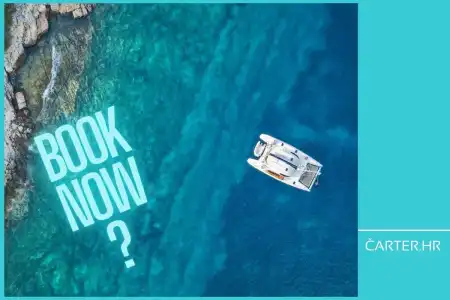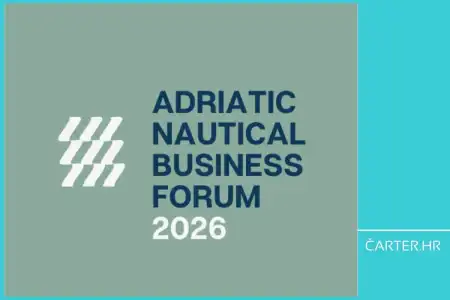
- 16.09.2025.
- News, Management
One word, two completely different businesses? An example is rent-a-boat and nautical charter, which are not the same. That is why it is important to know what you are offering and to whom. The line between rent-a-boat and charter is not always clear. And it should be.
The terms rent-a-boat and nautical charter are often confused in everyday speech.
At first glance, they sound the same - someone rents a boat, the guest goes to sea and everyone is satisfied.
However, for anyone who already rents vessels, cooperates with agencies or is thinking about entering this business, it is important to clearly distinguish what they are actually about.
Why? Because these two terms denote different types of services, different target groups, different expectations of guests and different obligations for the lessor.
So let's start in order and explain the basic differences.
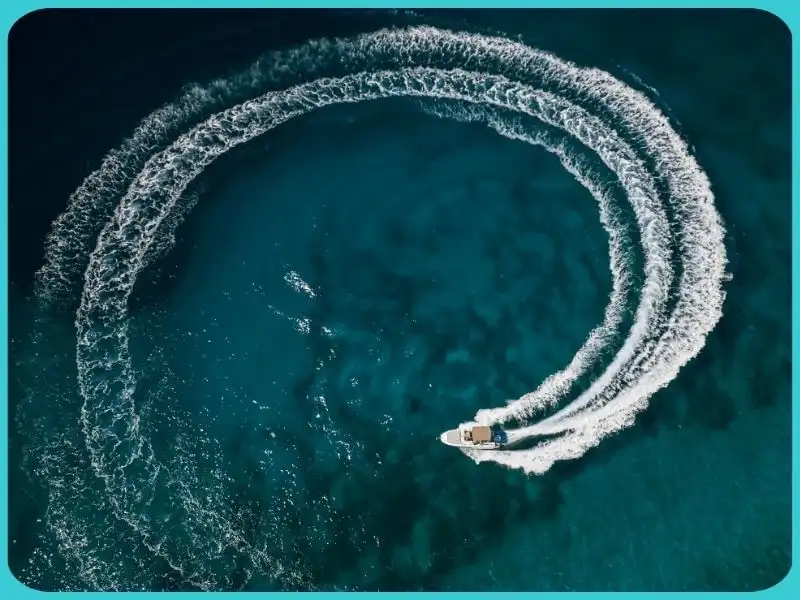
What does rent-a-boat imply?
Rent-a-boat refers to the short-term rental of smaller vessels, most often without cabins and equipment. This category mainly includes speedboats, motorboats and inflatable boats that are technically and spatially limited to one-day or several-hour use.
Such vessels are used exclusively for day trips, sightseeing of the coast, swimming or short transfers to nearby bays and islands. They are not equipped with water and fuel tanks of larger capacity, they do not have refrigerators, beds or sanitary facilities, so guests do not use them for multi-day navigation.
The most common forms of rent-a-boat rental:
- Bareboat rental: the guest steers the vessel himself, provided that he has a valid boatmaster's license. This option is common in tourist resorts with a large number of daily excursions.
- Skippered rental: when the guest does not have the necessary license or simply does not want to steer the vessel himself, the vessel is rented together with the person who steers the vessel, i.e. the skipper, most often the local boatmaster.
- Half-day, daily or hourly rental: a model that allows for quick organization of excursions, often without prior reservation.
In practice, this means that one can:
- come to the waterfront and arrange a half-day speedboat ride along the coast
- rent a dinghy for a day to visit a nearby island/beach
- use a free afternoon for a short excursion, without staying overnight on the boat
Rent-a-boat services are often offered through hotel receptions, travel agencies, information desks and directly on the waterfront. They do not require complex preparation or extensive logistics.
The vessels used in this type of charter generally have a huge selection of both vessels and excursions. That's why you need to know how to react quickly to demand during the season.
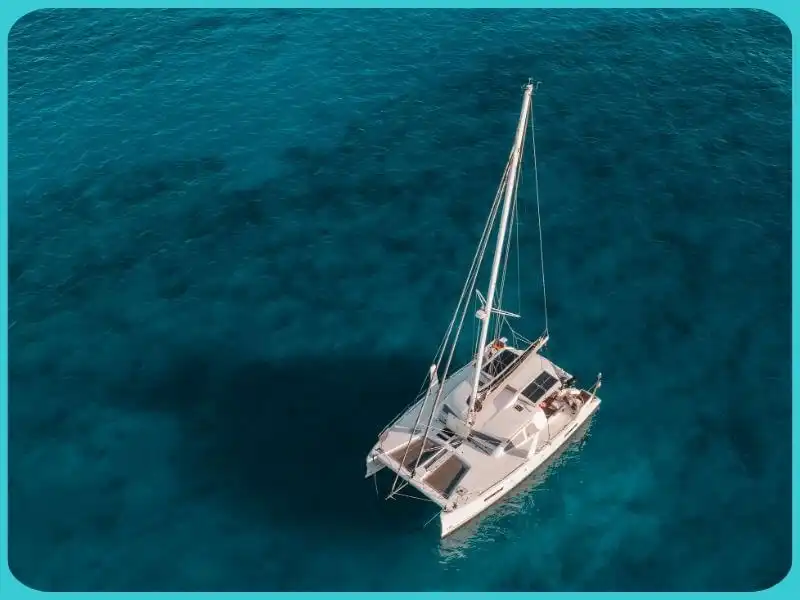
What does nautical charter imply?
Nautical charter refers to the rental of vessels that are technically and content-wise equipped for several days of sailing and staying at sea.
This includes sleeping cabins, a kitchen, larger capacity water and fuel tanks, a toilet, navigation equipment and everything necessary to be able to stay on board, without having to return to land.
The most commonly used are sailboats, catamarans and motor yachts, ranging in length from 10 to 20 meters, although larger vessels are also available.
Charters are usually arranged in advance, and the work rhythm is almost the same everywhere - the rental is organized from Saturday to Saturday, in weekly cycles, in order to simplify scheduling, cleaning and changing guests.
Types of nautical charters we distinguish:
- Bareboat charter: the guest takes control of the boat, but only if he has a valid license and confirmed experience. In this type of charter, the guest is solely responsible for the sailing plan, the crew's safety and all technical aspects during the charter.
- Chartering a boat with a professional skipper: in this case, the guest does not steer the boat independently, but rather a person with a valid license and experience does. This type of service is suitable for guests who want to sail but are not ready or able to take on this responsibility.
- Cabin charter: instead of the entire boat, the guest rents a cabin and shares the boat with other people. The route is predetermined, and the service usually includes a professional skipper and basic service.
- Crewed charter: in addition to the skipper, there is also another crew on board, such as a hostess, chef or sailor. Guests can fully devote themselves to their vacation, while the crew takes over all logistical and technical tasks.
In practice, this means that you can:
- rent a catamaran, without a crew, sail from Split to Hvar, Vis and Šolta, with overnight stays at anchorages - but only if you have all the necessary permits
- rent a sailing boat with a skipper who knows the local area and takes care of choosing safe ports and shelters
- rent a motor yacht with a crew and spend a week at sea, without worrying about organization, food and itinerary
- book a cabin on a charter route from Dubrovnik to Trogir and back, together with other people from other countries
A nautical charter is more demanding than a rent-a-boat. It requires more organization, foresight, communication and more coordination of deadlines, especially when cooperating with agencies.
A guest who chooses this type of charter is looking for more than a trip - he expects the experience of staying on a boat, a certain degree of comfort and safety. He is willing to pay more because he expects a higher level of service - as a renter, you need to be able to adapt to this.
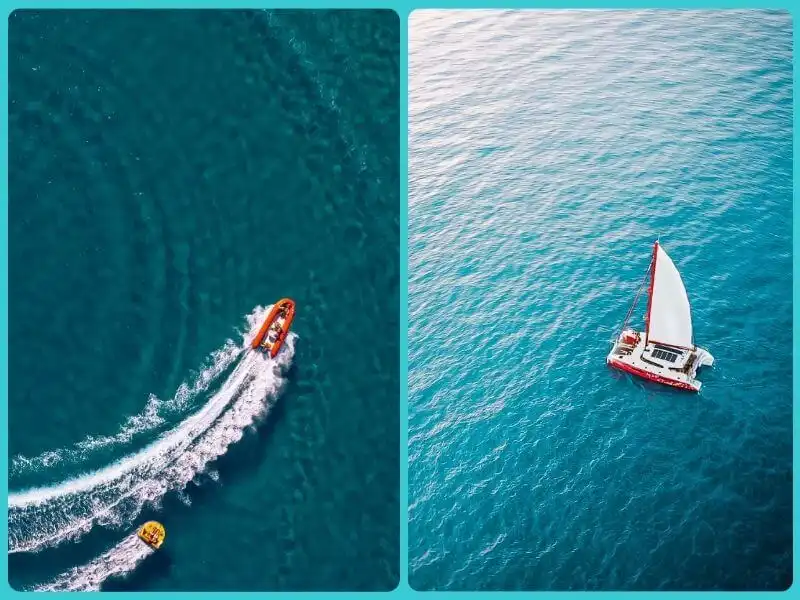
How to distinguish between these two models and why is it important for renters
Although rent-a-boat and charter are technically both vessel rentals, they are different business models.
They differ in the type of boat, type of service, duration of the rental, technical requirements, and also the expectations of the guests.
The most important differences can be summarized as follows:
Rent-a-boat
- Smaller vessels (up to 10 m)
- No cabins or equipment for multi-day stays
- Hourly, half-day or daily rentals
- The service is often offered directly from the waterfront or through receptions and information desks
- Lower rental price, faster decisions and faster rotation of guests
Nautical charter
- Larger vessels (10 m and more)
- Cabins, kitchen, sanitary facilities
- Rental for a week or more
- The service is arranged in advance, most often through agencies or directly with the owner of the vessel
- Higher price, higher level of service and more complex organization
For you as a renter, it is important to clearly define which model you offer because it directly affects the way you do business and your relationships with guests and partners.
Why it is important:
- The guest must know what he is getting and what he is agreeing to
If you advertise a charter, but in fact offer a daily speedboat rental, it leads to false expectations, dissatisfaction and bad reviews.
- Partners and agencies must accurately communicate the type of service
A clear description of the service prevents misunderstandings in communication, false advertising and unnecessary complaints.
- Legal obligations, permits and insurance differ depending on the rental model
Yacht charters are subject to different technical conditions, different types of insurance and additional records.
- Maintenance, logistics and paperwork differ in scope and complexity
Rent-a-boat implies more rotation of guests and more frequent daily shifts, while charter involves a longer stay on board and a higher degree of preparation and control.
That is why it is important to make it clear what you are offering. This avoids misunderstandings and shows that you are serious about running your business.
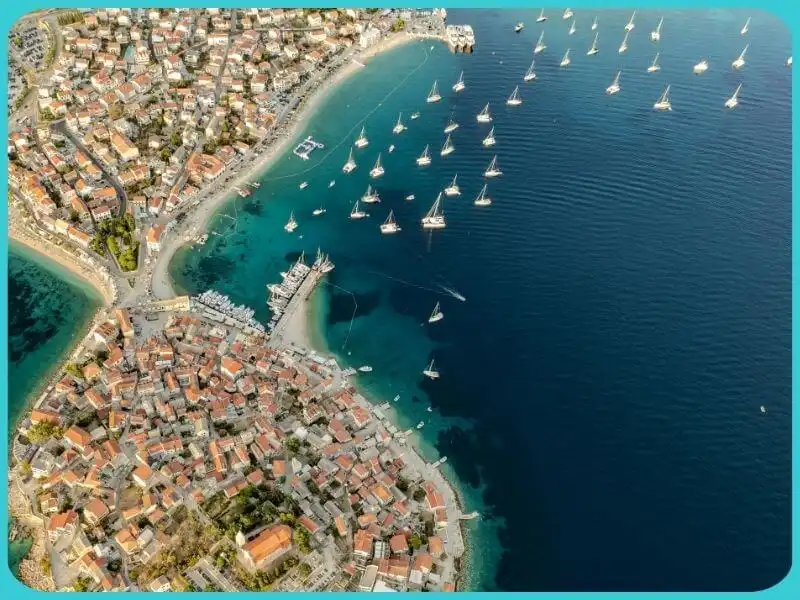
Why it's important to distinguish between rent-a-boat and nautical charter
If you rent boats or are just planning to do so, it's important to know what you're offering. Not to fit into someone else's rules, but to make your job easier.
When the name of the service is unclear, misunderstandings arise. Guests expect one thing and get something else. The agency is looking for a charter, and you offer a speedboat without a cabin. The descriptions in the ads look similar, even though they are completely different rental models.
That's why it's worth calling things by their real names. Not for the sake of form, but for the sake of everyday work - so that everyone knows who does what and what it means.
Want more articles like this?
Sign up to our newsletter and be the first to find out what's new.
Do you have a question, a suggestion, or want to collaborate?
Send a message via the contact form - we'll get back to you.
Categories of trends
- News
- Sale
- Marketing
- SEO
- Web design
- Social media
- Technology
- Regulations
- Management
- Education
- Finances
- User experience
Newsletter
Sign up for the newsletter and receive the latest trends and tips straight to your inbox



